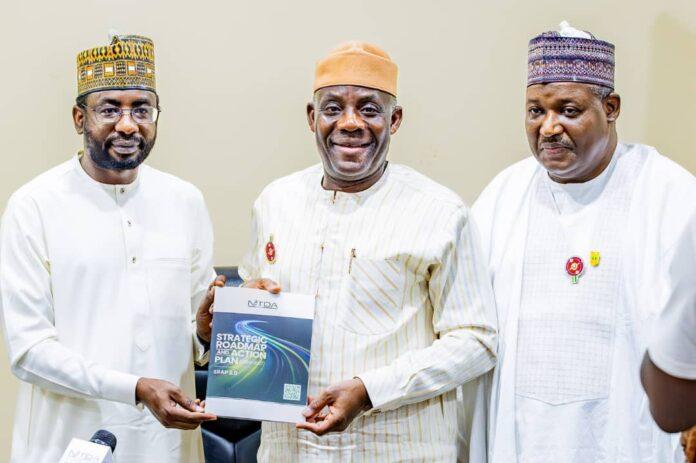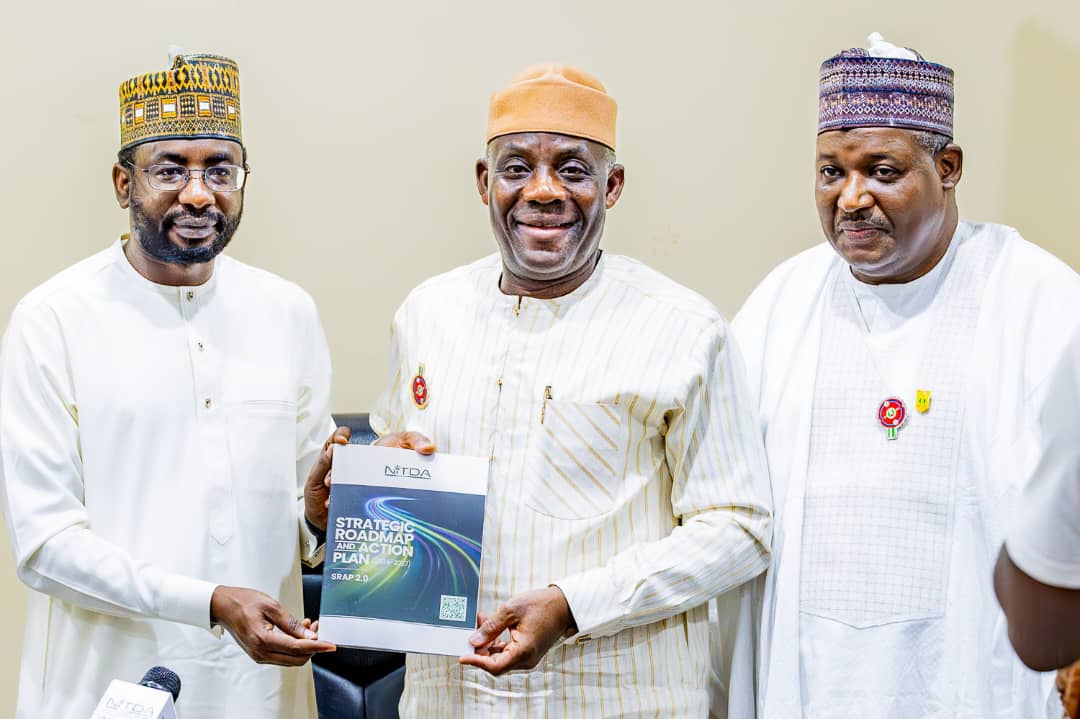
By Joy Onuorah
A child entering school today could graduate into a world where robots handle surgeries, AI drives industries, and coding is as basic as reading.
So, here’s the big question: are we equipping our kids with the tools to thrive in that future or just setting them up to play catch-up?
This is the question the National Information Technology Development Agency (NITDA) is boldly answering with its recent collaboration with the Ministry of Education.
Together, they’re not just tinkering with the system, they’re reimagining Nigeria’s education by weaving digital literacy into every layer of learning.

Last Friday, the Director-General of NITDA, Kashifu Inuwa, met with the Minister of Education, Dr. Maruf Tunji Alausa, to kick-start a partnership that could revolutionize what education means for millions of Nigerian children.
What’s the Big Idea?
It’s simple yet profound: teach digital skills to Nigerian students from kindergarten to university. Not as an afterthought, but as a core part of their education.
Think about it, kids learning to code alongside their ABCs or teenagers exploring AI, robotics, and cybersecurity before they even sit for WAEC.
The short-term target is 70% digital literacy by 2030. The long-term vision is a jaw-dropping 95%.
But this isn’t just about numbers. It’s about narrowing the digital divide, breaking the cycle of inequality, and making sure every Nigerian child whether in bustling Lagos or a quiet rural village, has access to the skills that will define tomorrow’s jobs.
Why Does This Matter?
Inuwa put it perfectly: “The future is digital, and the world is evolving faster than ever. If we don’t prepare our youth today, they’ll be left behind tomorrow.”
Digital literacy isn’t optional anymore. It’s survival. It’s how we empower a generation to stop being consumers of technology and start becoming creators, leaders, and innovators.
And it’s not just about the kids. This initiative recognizes that teachers are the heartbeat of education.
From training educators to deploying tech-friendly tools in classrooms, the plan is to build a robust system that works for everyone.
The Game Plan
This isn’t just another policy on paper. It’s a full-scale movement backed by major players like CISCO, the National Universities Commission (NUC), and Universal Basic Education Board (UBEC). Their combined expertise will drive efforts like:
1. Developing a forward-thinking digital curriculum.
2. Training teachers to integrate tech into their lessons.
3. Rolling out cutting-edge digital infrastructure to schools nationwide.
4. Ensuring underserved communities aren’t left behind.
What’s at Stake?
This is bigger than just classroom learning. It’s about changing lives. Picture a child from a remote village building an app that solves a local problem. Or a university student designing a sustainable tech solution that captures global attention.
This partnership isn’t just upgrading education, it’s creating a ripple effect for Nigeria’s economy, innovation landscape, and global standing.
A Vision Worth Believing In
Dr. Alausa summed it up beautifully: “Education is the foundation for national development. By embedding digital literacy into our system, we’re not just teaching kids to adapt to change; we’re teaching them to drive it.”
.

























